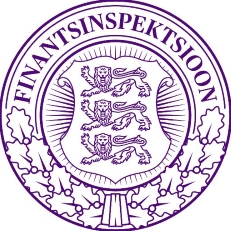Guide to the EFSA Forex Regulation in Estonia
Do you need to find the best EFSA regulated brokers available today? Read the information on this page, provided by industry experts in the financial and trading sector, and before long you’ll be able to hunt down the very best brokers regulated by the EFSA. We’ll also give you background on the regulator and explain what to do if you need to check for EFSA certification or make a complaint.
Wherever you may be living, whatever country you reside in, there will be a regulatory body responsible for financial services. For those of you who live in Estonia, the regulatory body is the EFSA. Otherwise known as the Estonian Financial Supervision Authority.
If you can’t find many EFSA regulated brokers, try some of the best CySEC regulated brokers:
- Hot Forex
- XTB
- HYCM
- XM
- Plus500
- FXTM
Best and most trusted forex brokers in April 2024
What is the EFSA?

The history of the EFSA
In the 1990s there arose a need for institutional reform of financial regulation. This came about because of the growing integration of the country’s financial sector and the fast-growth in non-banking financial arbitration. The reform was requested by the Bank of Estonia and the Government of the Republic. A new agency was established following the creation of a committee and the drafting of legislation. The initial draft of the reform was rejected but the Estonian Parliament passed the Financial Supervision Authority Act in 2001. The EFSA is also a member of the Committee of European Securities Regulators.
What does the EFSA do?
The overall role of the EFSA is to create and maintain a safe trading environment for people like you. They do this by regulating all brokers operating in Estonia, and making sure they’re operating in a lawful and fair manner. The result? All of the best brokers in Estonia are EFSA regulated.
Tasks of the EFSA include:
- Working with the aim of stabilizing Estonia’s financial sector
- Lowering the risks in the financial system
- Preserving clients and investors assets and protecting their interests
- Improving the transparency of the financial sector and helping it to stay competitive
- Aiding in the prevention of abuse of the financial sector
- Stabilizing the Estonian monetary system
- Increasing the efficiency of the financial sector
How safe are the best EFSA regulated brokers?
The Estonian Financial Supervision Authority is responsible for overseeing a wide range of institutions and organizations, including:
- Licensed banks
- Insurance intermediaries and companies
- Fund management companies
- Investment firms
- Investment and pension funds
- E-money and payment institutions
- Credit intermediaries and creditors
- Securities market
It also takes the education of consumers very seriously, and has set up a website where consumers are able to get unbiased information concerning the organization of finances. It includes information about financial markets, financial services and products, comparison tables and calculators.
Clearly, the EFSA takes safety and educations seriously – which is why you can trade safely at all the best EFSA regulated brokers.
MiFID and the best ESFA brokers
MiFID stands for the Markets in Financial Instruments Directive. It is a directive which aims to merge the financial markets in the European Union and increase the level of cross-border investment. It officially took effect in November 2007 and is currently going through a process of improvement.
MiFID is EU legislation which regulates firms providing services linked to financial instruments, and where the instruments are traded.
The aims of the Directive are to:
- Harmonize the rules governing financial services firms and their activities
- Allow for easier cross-border business
- Increase transparency of the markets
- Improve consumer protection
One important feature of MiFID relates to best execution. Firms operating in accordance with MiFID must take all reasonable steps to ensure the best possible result in the execution of client’s orders. This is not just in relation to the execution price, but also speed, cost, likelihood of execution and likelihood of settlement.
Because all brokers regulated by the EFSA are compliant with MiFID it gives you great flexibility to compare different brokers and choose the one which suits you, safe in the knowledge that they’re all under strict rule and can be considered among the best EFSA regulated brokers.
What you can do if you have a problem with an EFSA regulated broker?
Should you encounter a problem with a forex broker in Estonia, there is a set procedure you will be able to follow.
The first step is to contact the service provider and clarify the nature of the problem by telephone. Or you can do it in writing. It is very likely the problem can be resolved in this way, but if the matter is not satisfactory concluded it is possible to contact the EFSA.
The Estonian Financial Supervision Authority should be the first port of call when you need independent advice. The EFSA is not able to participate in the settlement of civil disputes and does not act as an extrajudicial body because it is not competent in legal assessments. Despite this, the EFSA can advise you on where you can go and who to speak to in order to resolve the dispute.
If communication with the service provider has failed to reach a satisfactory resolution and the EFSA can’t help, you can take the matter to the courts. According to the Estonian constitution, there is a three-tiered court system. The first is the county courts and administrative courts. The second is the district or appellate courts and, finally, there is the Supreme Court or Court of Cassation.
Is it possible to check whether brokers in Estonia are regulated?
The EFSA website lists all EFSA brokers, so it’s easy to check whether a broker you are considering using is authorized. Investment firms are usually public limited companies whose primary activity is to provide investment services. This includes EFSA regulated brokers, which will have an activity license issued by the FSA.
But what exactly is an investment service? Investment services are those which:
- Purchase and transfer securities either in its own name or on behalf of clients
- Receive security transaction orders from client
- Trade in securities on its own behalf
- Manage a portfolio of securities separately for individual clients
- Underwrite a securities issue
- Organize the issuance of securities, public offers or accepts securities for trading on a regulated market
Once you have found the name of a particular investment firm it is possible to click on the name and get all the relevant details. These include:
- Company registry number
- Contact information and web address
- Capital stock
- Names of authorized people
- Services specified in the license
- Name of auditor
- Shareholder information


